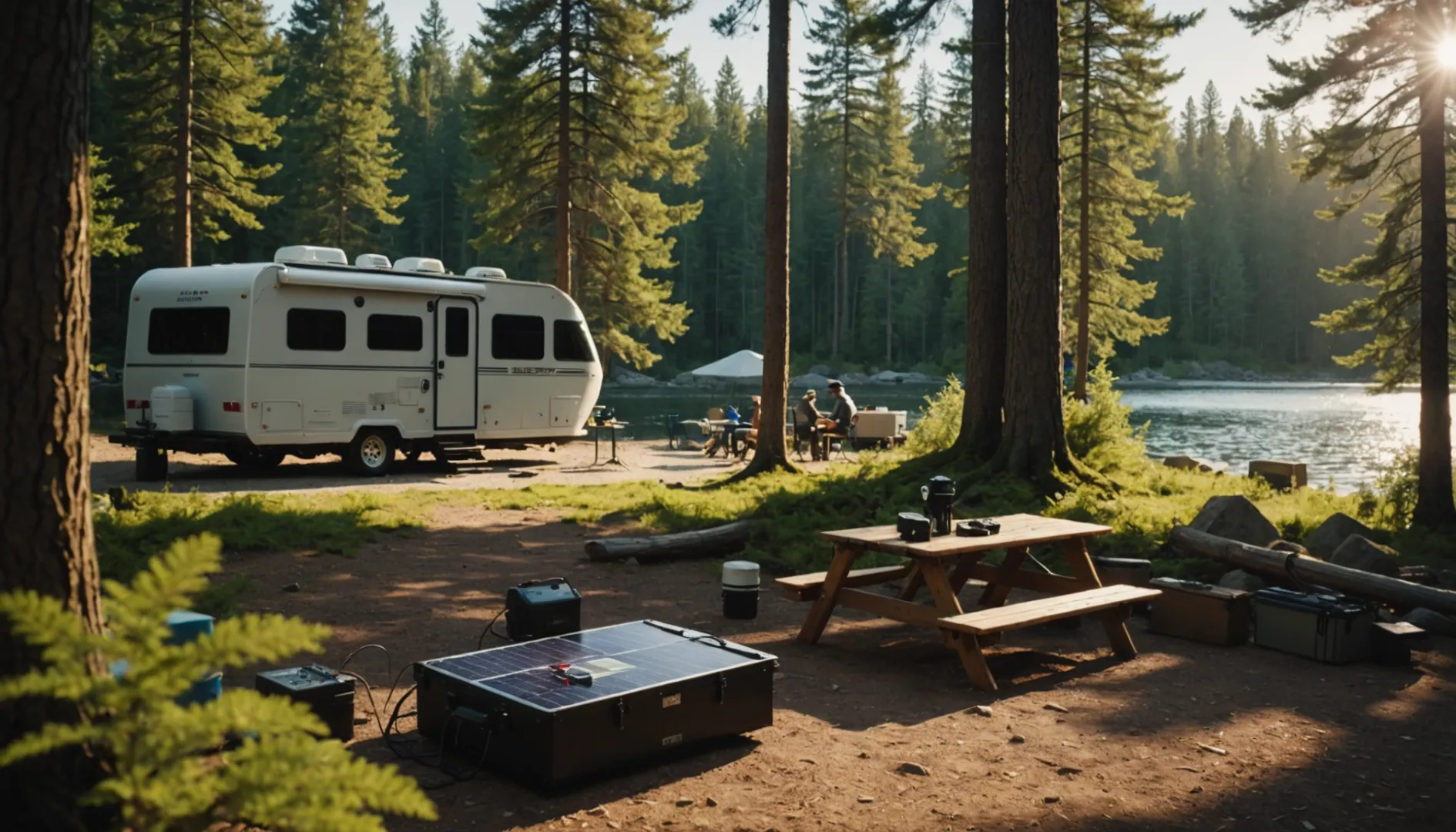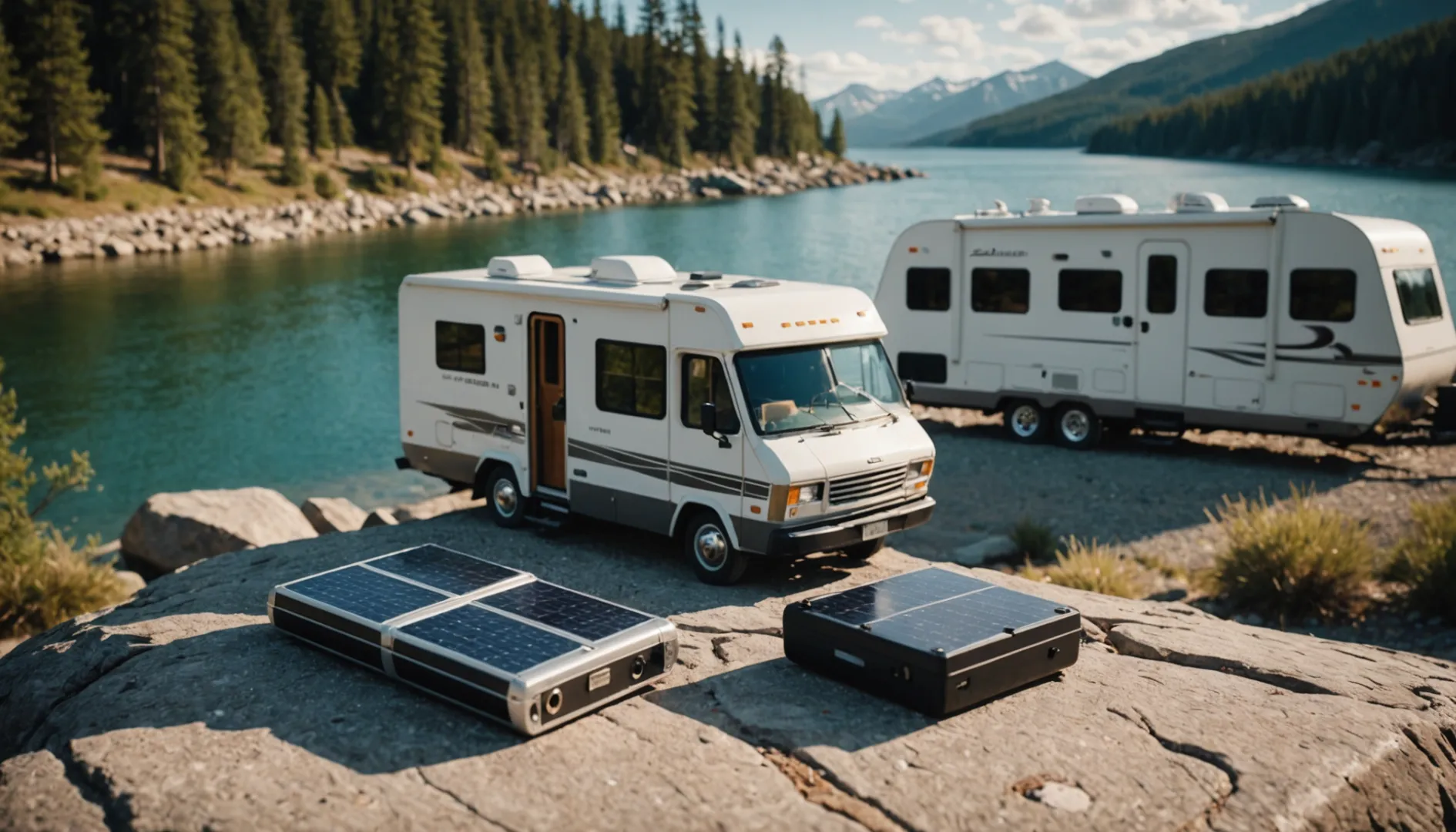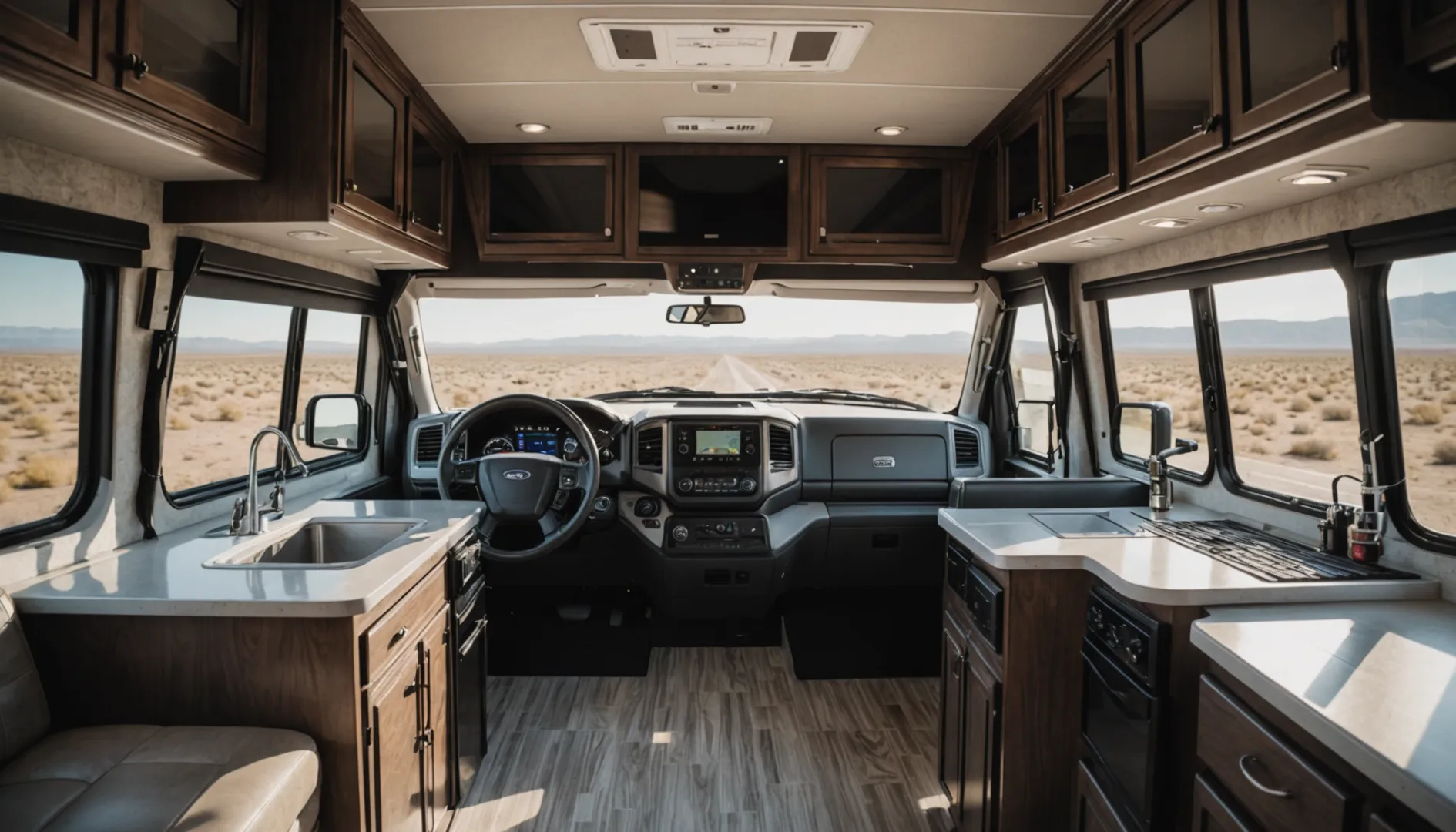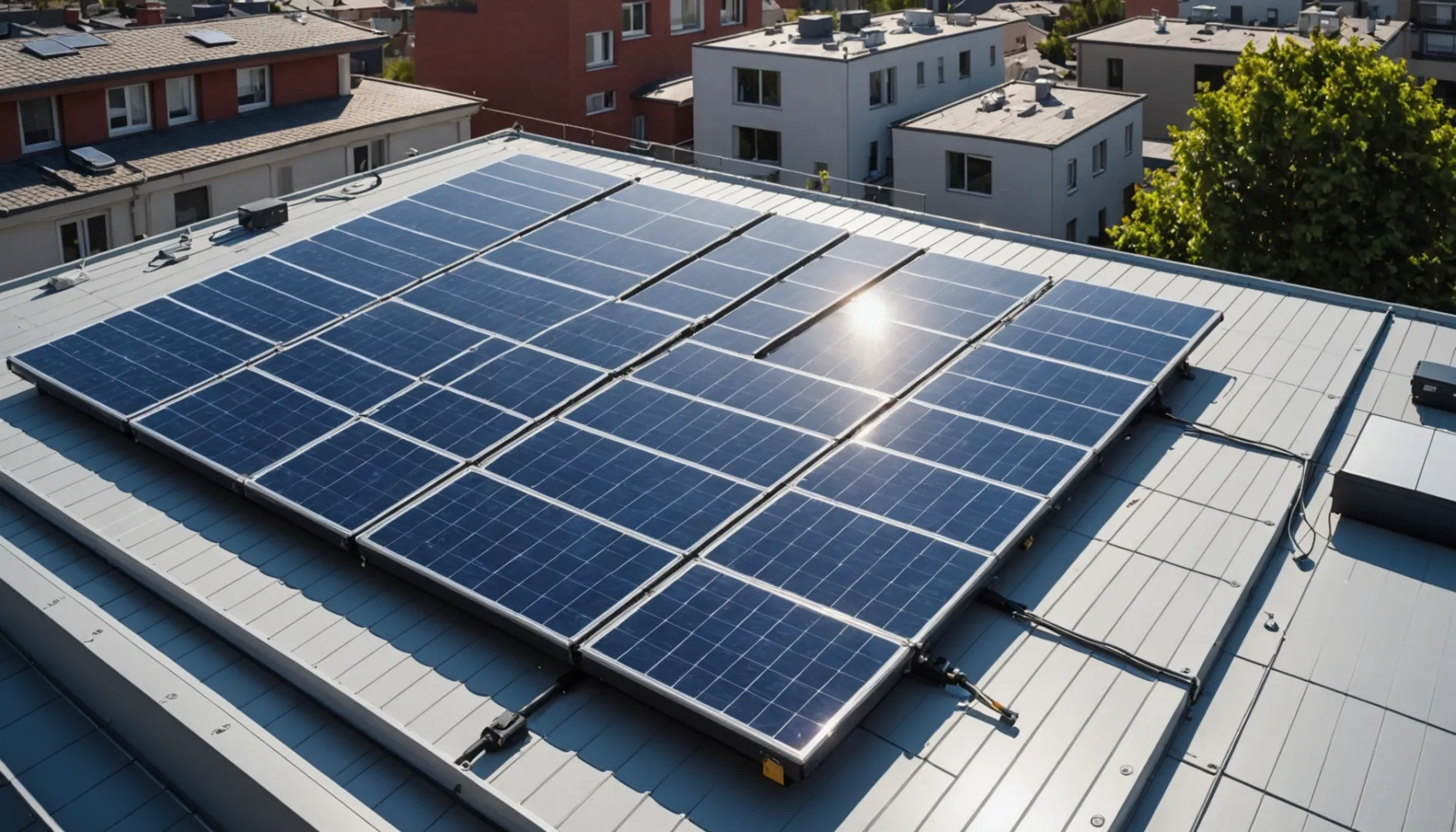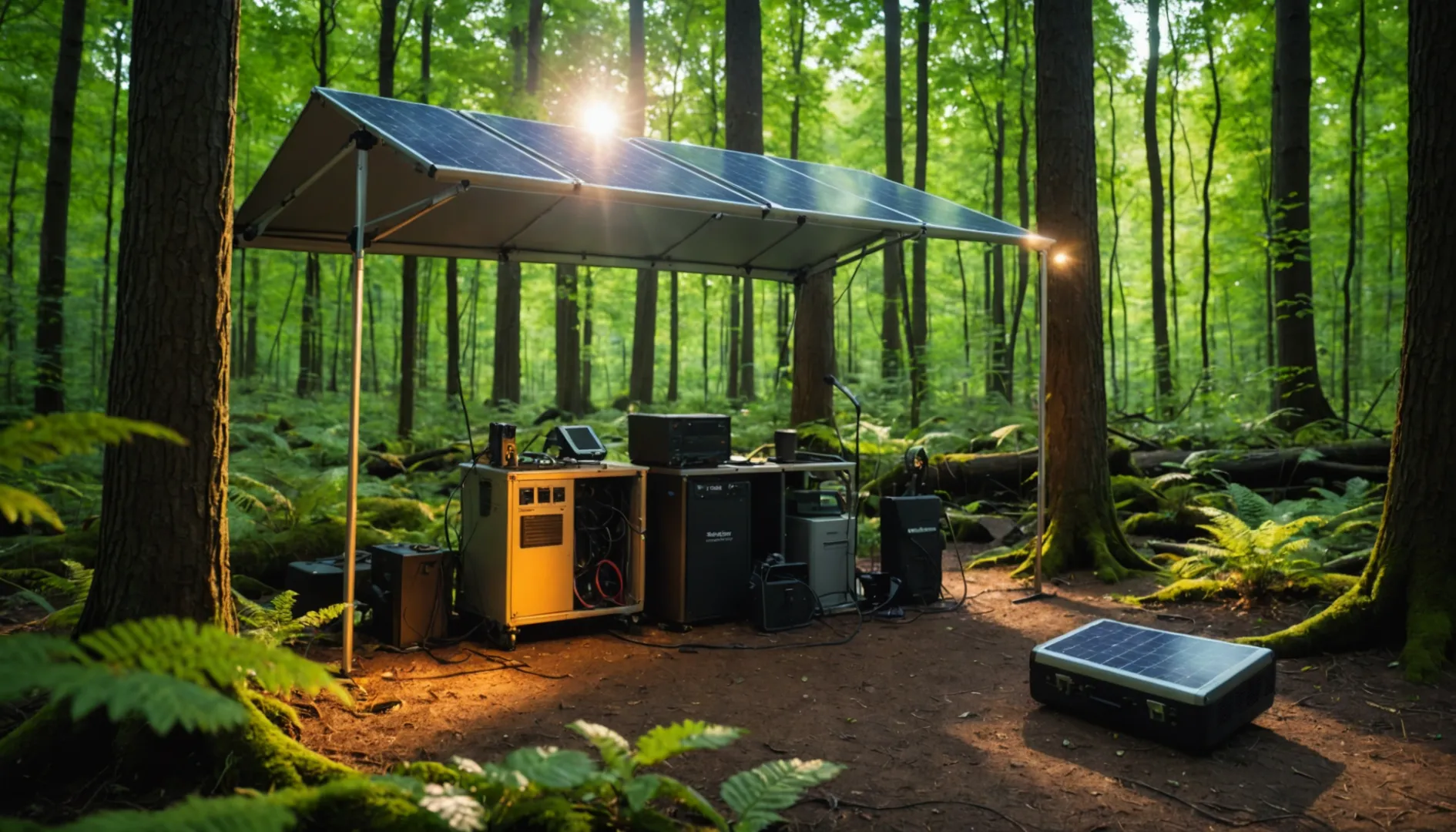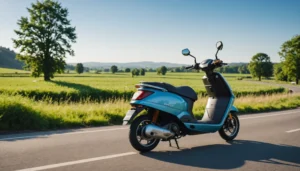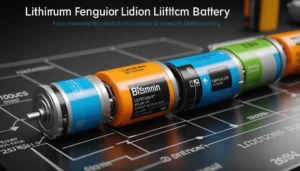Have you ever wondered what powers your favorite gadgets and adventures?
A 12V lithium-ion battery offers significant advantages, including a long lifespan, lightweight design, fast charging, and deep discharge capabilities. These features make it ideal for applications in RVs, marine systems, solar energy setups, backup power solutions, and electric vehicles.
I remember the first time I decided to take my RV off the grid. It was a mix of excitement and anxiety—would my power sources hold up? That's when I discovered the magic of 12V lithium-ion batteries. With their impressive lifespan and reliability, these batteries became my trusty companion on the road. Whether powering up my onboard gadgets or ensuring that late-night camping lights stayed on, they never let me down.
These batteries aren't just for road warriors like me. They're also a boon for boat enthusiasts who rely on them to power engines and navigation systems. And let's not forget solar energy setups—these batteries store solar power efficiently, providing peace of mind during power outages or in remote locations. Understanding these applications can truly make a difference in choosing the right power source for your needs. Trust me, once you experience the convenience and dependability of 12V lithium-ion batteries, there's no going back.
Lithium-ion batteries weigh half as much as lead-acid batteries.True
Lithium-ion batteries are significantly lighter, enhancing portability.
12V lithium-ion batteries have a lifespan of 1000 charge cycles.False
They typically last 2000-5000 cycles, outlasting many alternatives.
How Do 12V Lithium-Ion Batteries Compare to Lead-Acid Batteries?
Deciding on the right battery can feel like choosing between night and day.
12V lithium-ion batteries offer a longer lifespan, lighter weight, and faster charging than lead-acid batteries, making them ideal for a variety of uses. They are more efficient and allow deeper discharges. However, lead-acid batteries are often cheaper and widely accessible, appealing to budget-conscious buyers.
Lifespan and Efficiency
When I first started looking into batteries for my solar setup, I was blown away by the lifespan of 12V lithium-ion batteries. Imagine not having to worry about replacements for years! These babies can handle between 2000-5000 charge cycles. In contrast, lead-acid batteries usually give up after 500-1000 cycles. It's like comparing a marathon runner to someone who barely makes it around the block. Plus, lithium-ion batteries keep their pep until the very end—no sluggish performance halfway through their life like lead-acid ones.
Lead-acid batteries, however, are known for their reliability in delivering steady power output in specific applications1. They are often used in systems where cost and availability outweigh the need for a longer lifespan.
Weight and Size
Let's talk about weight because, frankly, who wants to lug around a heavy battery? I remember the first time I installed a lithium-ion battery in my RV; it felt like I'd just swapped out an anchor for a feather. They weigh about half as much as lead-acid batteries, which is a game-changer if you're on the move or if every pound counts—like in my recreational vehicle2 adventures where every bit of weight saved means better fuel efficiency and easier handling.
Charging Time and Depth of Discharge
If you're like me and can't stand waiting around, lithium-ion batteries are your new best friend. They charge so much faster than lead-acid ones. This quick charging capability is crucial during camping trips when downtime needs to be minimized. And get this—they can be discharged up to 80-90% without harming the battery! Lead-acid batteries? They max out at about 50% if you don't want them to die young.
Cost and Availability
Now, let's talk money. I won't lie—lithium-ion batteries have a steeper price tag upfront. But think about it: fewer replacements mean less hassle in the long run, which often balances out the initial cost. If you're pinching pennies or need something immediately, lead-acid is a solid choice—easy to find and easier on the wallet.
Environmental Impact
As someone who's passionate about our planet, I couldn't ignore the environmental angle. Lithium-ion batteries generally have a smaller eco-footprint over their lifetime compared to lead-acid. While both have their challenges in terms of production and recycling, ongoing improvements in lithium-ion recycling tech offer some hope for greener days ahead.
Lithium-ion batteries last longer than lead-acid batteries.True
Lithium-ion batteries offer 2000-5000 charge cycles, exceeding lead-acid.
Lead-acid batteries are lighter than lithium-ion batteries.False
Lithium-ion batteries are about half the weight of lead-acid equivalents.
What Are the Key Benefits of Using 12V Lithium-Ion Batteries in RVs?
Thinking about transforming your RV experience? Discover the magic of 12V lithium-ion batteries and why they're a must-have for wanderlusters like us.
With 12V lithium-ion batteries, RV enthusiasts enjoy benefits like longer life, lighter weight, faster charging, and superior energy efficiency compared to old-school lead-acid batteries, making every road trip smoother and more enjoyable.
Enhanced Lifespan and Durability
I remember the first time I swapped my old lead-acid battery for a shiny new 12V lithium-ion one. It felt like my RV had just discovered the secret to eternal youth! These batteries boast an impressive lifespan, lasting anywhere from 2000 to 5000 charge cycles. That’s a lot of weekends on the road without worrying about battery replacements. This longevity means fewer hassles and expenses over time, which is a win-win for anyone who loves the open road as much as I do.
Lightweight Design
RVs and weight are like peanut butter and jelly—it's all about balance. The first time I lifted a lithium battery, I almost threw it over my shoulder; it's that light. We’re talking about half the weight of traditional lead-acid batteries. This reduction is a game-changer, letting me pack a few extra comforts without tipping the scales or compromising on fuel efficiency.
Fast Charging Capabilities
Patience might be a virtue, but when I'm ready to hit the next destination, I want my RV charged and ready to roll. Lithium-ion batteries charge much faster than their lead-acid counterparts, so I'm not left twiddling my thumbs at the charging station. It’s all about maximizing adventure time!
Greater Depth of Discharge
One of the hidden gems of lithium technology is how deeply these batteries can be discharged without damage. When I’m off-grid camping, this means I can stretch my power further, keeping my gadgets going without constantly hunting for a recharge. Unlike lead-acid batteries that you shouldn’t drain below 50%, lithium batteries give me more freedom and peace of mind.
For those interested in exploring more about off-grid camping3, understanding your battery's depth of discharge can significantly enhance your experience.
Efficiency and Versatility
The efficiency of lithium-ion batteries is like having a quiet co-pilot that makes sure everything runs smoothly. They maintain a higher voltage throughout their discharge cycle, ensuring my appliances operate without a hitch. Whether I'm running small electronics or larger appliances, these batteries adapt seamlessly, even integrating with solar systems for eco-friendly energy solutions.
Safety Features
Safety is always at the forefront when traveling, and these batteries don’t disappoint. They come with built-in safety features like Battery Management Systems (BMS) that prevent overcharging and overheating. This gives me that much-needed peace of mind when cruising down unfamiliar roads.
Switching to lithium technology in my RV has been a game-changer. For those considering making the leap, looking into battery management systems4 can help you maximize your battery’s performance and lifespan, ensuring your travels are powered safely and efficiently.
12V lithium batteries double RV power system lifespan.True
Lithium batteries often last 2000-5000 cycles, doubling lead-acid lifespan.
Lithium batteries are heavier than lead-acid in RVs.False
Lithium batteries are about half the weight of equivalent lead-acid batteries.
How are 12V Lithium-Ion Batteries Utilized in Solar Energy Systems?
Imagine harnessing the sun's power with the help of compact yet powerful 12V lithium-ion batteries.
12V lithium-ion batteries play a crucial role in solar energy systems by storing power collected from solar panels for off-grid use. They provide high efficiency, a lightweight design, and a longer lifespan compared to traditional lead-acid batteries, making them ideal for sustainable energy solutions.
Advantages of 12V Lithium-Ion Batteries in Solar Systems
When I first ventured into solar energy systems, I quickly learned why 12V lithium-ion batteries are so highly regarded. Their efficiency is a game-changer; unlike their lead-acid counterparts, these batteries handle deep discharges without a hitch, meaning more of that precious solar energy can be stored and used. It's like having a bigger pantry—you can store more and waste less.
And let's talk about longevity. These batteries often last between 2000 and 5000 charge cycles, which means they're not just here for a season—they're in it for the long haul. Imagine the relief of knowing your investment will keep powering through the years, much like a loyal old car that just won't quit.
Applications in Off-Grid and Backup Systems
In my off-grid explorations, having a reliable power source is crucial. That's where these batteries shine. They become the unsung heroes, providing consistent power for everything from basic lighting to running essential appliances when there’s no grid to rely on. And during those tense moments when the grid decides to take a nap, having a backup system integrated with solar panels is like having a superhero on standby.
Integration in Residential and Commercial Installations
Whether it’s for my home or a commercial project, integrating 12V lithium-ion batteries brings peace of mind. In residential settings, they store energy generated during the sunny days so we can keep the lights on even when the skies turn gray. For commercial installations, they help meet hefty energy demands with ease.
Their lightweight design also cuts down installation time and costs—trust me, this makes a huge difference in large-scale projects where every minute and dollar count.
Environmental and Economic Impact
On the environmental front, these batteries help reduce carbon footprints by optimizing renewable energy usage. Economically, they’re like that savvy friend who always knows how to save you money. By storing solar power for peak times, they help slash those energy bills.
In conclusion, I've found that understanding how 12V lithium-ion batteries5 fit into solar energy systems is key to maximizing solar power generation and storage effectiveness.
12V lithium-ion batteries store solar energy efficiently.True
They have fast charging, long lifespan, and deep discharge capabilities.
Lead-acid batteries outperform lithium-ion in solar systems.False
Lithium-ion batteries are lighter and have more charge cycles than lead-acid.
Why Choose 12V Lithium-Ion Batteries for Portable Power Stations?
Imagine being in the middle of nowhere, surrounded by nature's beauty, and all your devices are charged and ready. Sounds like a dream, right?
12V lithium-ion batteries are perfect for portable power stations because they're lightweight, last longer, charge quickly, and pack a lot of energy. They surpass traditional lead-acid batteries in efficiency and versatility, making them ideal for camping, off-grid living, and emergency power needs.
The Lightweight Advantage
I remember lugging around a hefty lead-acid battery on a camping trip once. The weight was unbearable, especially on those narrow trails! That's when I discovered the magic of 12V lithium-ion batteries. They're about half the weight of their lead-acid counterparts, which means less strain on my back and more energy for adventure. Whether I'm setting up for an outdoor event6 or simply exploring the great outdoors, mobility is key, and these batteries deliver.
Extended Lifespan and Durability
There's nothing worse than a battery that quits on you after a few uses. But with lithium-ion batteries, I can breathe easy. They often last between 2000-5000 charge cycles. That's like having a trusty sidekick that doesn't need constant replacements or costly maintenance. For anyone who relies on portable power stations for the long haul, like I do during my off-grid escapades, this is a game-changer.
Fast Charging Capabilities
Time is precious, especially when you're in the middle of nowhere and need power fast. With lithium-ion technology, recharging is quick and hassle-free. I can't count the number of times this has saved me during emergency situations7. It's like having a superpower to recharge devices swiftly and get back to what truly matters.
Greater Depth of Discharge
Unlike lead-acid batteries that require careful discharge monitoring to avoid damage, lithium-ion batteries offer more freedom. They allow deeper discharge without harm, meaning I can safely use more of the battery's capacity. This has been particularly useful during my extended trips and off-grid living8 adventures.
Versatility Across Applications
Whether it's powering solar energy systems9 or ensuring my medical equipment runs smoothly, 12V lithium-ion batteries have been incredibly versatile. They consistently perform well in various temperatures and environments. From rugged terrains to everyday needs, these batteries are reliable partners in all my adventures.
Lithium-ion batteries last up to 5000 charge cycles.True
Lithium-ion batteries often have a lifespan of 2000-5000 charge cycles.
Lead-acid batteries are lighter than lithium-ion ones.False
Lithium-ion batteries are about half the weight of lead-acid batteries.
TOWO Power Is a leader for lithium battery product solution company from China
Conclusion
12V lithium-ion batteries offer long lifespan, lightweight design, fast charging, and deep discharge capabilities, making them ideal for RVs, marine systems, solar energy setups, and portable power applications.
-
Discover reliable uses for lead-acid batteries. ↩
-
Understand the advantages of lighter batteries in RVs. ↩
-
Discover how lithium batteries enhance off-grid camping experiences. ↩
-
Learn how BMS improves lithium battery performance and safety. ↩
-
Learn about efficiency differences between lithium-ion and lead-acid batteries. ↩
-
Learn how lightweight design improves mobility and convenience outdoors. ↩
-
Quick charging is crucial during urgent power needs. ↩
-
Explore how depth of discharge enhances off-grid efficiency. ↩
-
Discover their role in boosting solar energy applications. ↩


